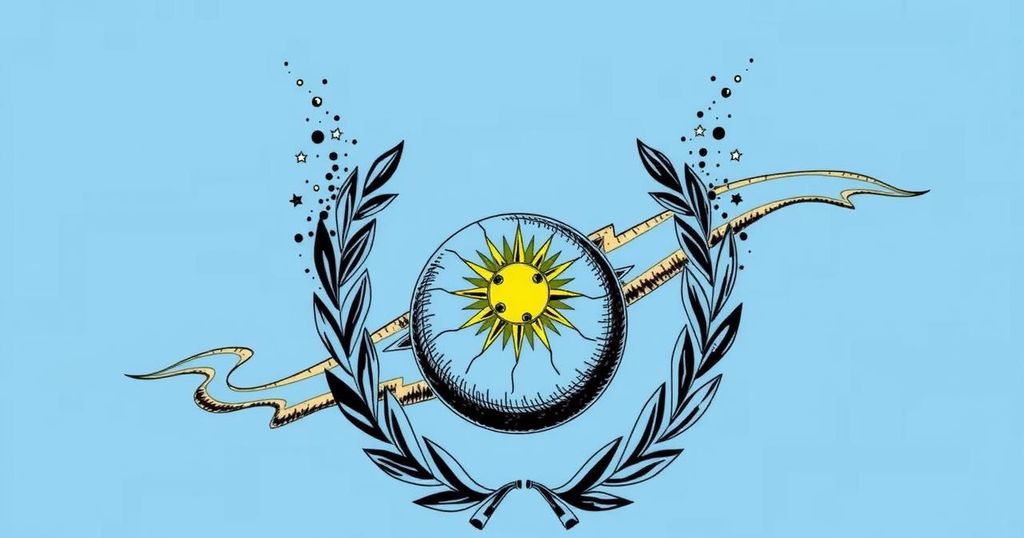Concerns Over Political Apathy and Youth Disenchantment in Uruguay’s Elections
Uruguay’s recent presidential elections displayed an alarming lack of engagement, with uninspiring candidates leading to a runoff. Increasingly, Uruguayan youth feel disconnected, with a significant segment willing to forsake democracy for effective governance. Youth unemployment, high dropout rates, and mental health crises compound the political apathy pervasive among this demographic, raising concerns about the nation’s democratic stability and future political participation.
In this year of significant elections, Uruguay’s recent presidential vote did not capture the attention it warranted. The political climate was characterized by uninspiring candidates who struggled to rally undecided voters, culminating in an outcome where no candidate achieved a majority. Consequently, Uruguayans now face a runoff election amid a backdrop of historically vibrant democratic engagement that has dulled into a lackluster political atmosphere.
Traditionally, Uruguay has showcased passionate electoral participation, with banners and lively public discourse stemming from a robust democratic tradition, forged in the wake of past dictatorship. However, the current election cycle reflects an unsettling trend, particularly among the youth demographic, indicating a disconnection from the political process despite the nation’s history of stability amidst regional turmoil.
Disconcertingly, a recent Latinobarómetro poll revealed that 38 percent of young respondents expressed willingness to relinquish democratic ideals for governance that promises resolution of pressing issues. The alarming statistics regarding youth engagement illustrate a burgeoning crisis; with youth unemployment soaring to 26 percent and high school dropout rates significantly contributing to a sense of disenfranchisement. Furthermore, issues of poverty and mental health challenges have exacerbated the situation, with suicide emerging as a leading cause of death among young people in Uruguay.
While younger voters demonstrate disillusionment, older generations also express dissatisfaction with the current government’s approach to critical issues such as childhood poverty, corruption, and the rising cost of living. In the face of these concerns, key candidates have struggled to resonate with these demographic groups, highlighting a precarious moment for Uruguay’s democracy.
As election season progresses, the stakes are high. The presidency’s approach to addressing socio-economic challenges will be pivotal in determining the future political engagement of Uruguayans, especially the youth, who hold significant potential for shaping the nation’s democratic landscape going forward.
Uruguay has historically been viewed as a model of political stability in Latin America, characterized by its commitment to democratic governance and peaceful transitions of power. Yet, this year’s elections reveal a disconcerting apathy among voters, particularly the youth who feel increasingly disconnected from the political process despite the country’s reputation for social and economic progress. Amid rising youth unemployment, mental health crises, and sentiments of disenchantment with traditional political structures, the upcoming runoff presents critical questions for the future of democracy in Uruguay.
The current political landscape in Uruguay signals a troubling disconnect between established political figures and a growing segment of disenchanted voters, particularly the youth. The upcoming runoff candidates must address pressing economic and social issues to reinvigorate political engagement and restore faith in democratic ideals among the populace. This election cycle thus holds the potential to reshape the foundations of Uruguay’s vibrant democracy, contingent upon the candidates’ responsiveness to the electorate’s needs.
Original Source: www.nytimes.com




Post Comment